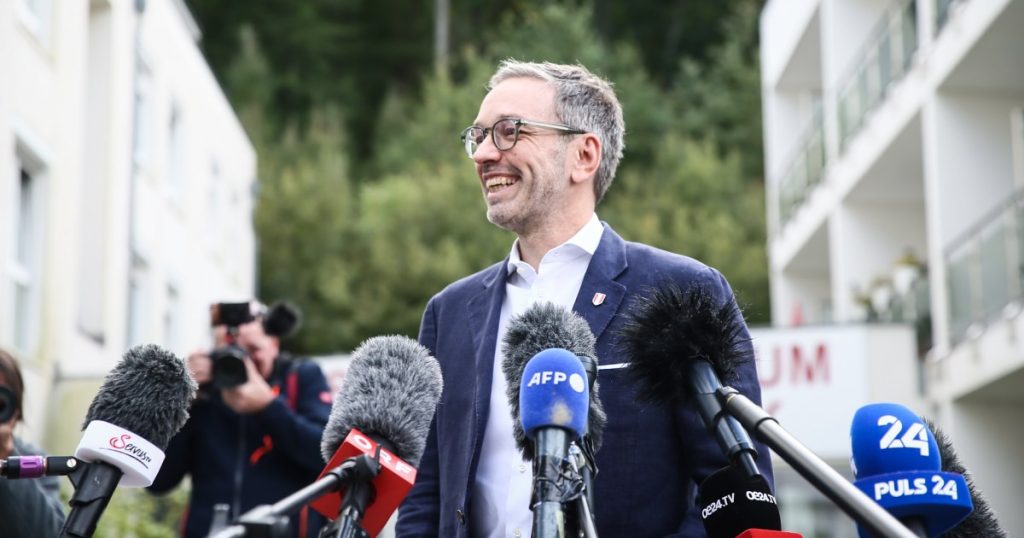Austria’s recent election has resulted in a victory for the far-right Freedom Party, or FPÖ, founded by former Nazis. The FPÖ secured 29.1% of the vote, surpassing the ruling conservative ÖVP and the Social Democratic Party, reflecting a growing anti-immigrant and anti-Islam sentiment in Europe. The party’s leader, Herbert Kickl, has proposed drastic changes to Austria’s migration system, including the deportation of migrants to their country of origin. The FPÖ also has strong ties to Russian President Vladimir Putin, advocating for an end to Europe’s support for Ukraine and the sanctions on Russia.
Despite the FPÖ’s success in the election, forming a coalition government may prove challenging as all other major parties have ruled out working with the far-right party. This could result in a period of political uncertainty as parties negotiate to take control. The FPÖ previously held a coalition government with ÖVP between 2017 and 2019 but faced scandal and conflict leading to its collapse. With Kickl now leading Austria’s biggest party, the nation joins other European countries where the far-right has gained considerable power, including Germany, France, and the Netherlands.
The FPÖ’s resurgence marks a symbolic victory for the far-right movement and indicates a shift in Europe’s political landscape. Kickl’s rise in the party has drawn comparisons to Adolf Hitler, as he has been dubbed “people’s chancellor” by his supporters. The party’s focus on anti-immigration and anti-Islam sentiment has resonated with Austria’s population, leading to its significant vote share in the election. The FPÖ’s policies and ideas, including close ties with Putin and opposition to EU sanctions on Russia, have fueled their electoral success.
The FPÖ’s victory in Austria’s election could potentially alter the country’s stance on international relations and migration policies. Kickl’s proposals for remigration and aligning with Russia go against mainstream European and global norms. With the FPÖ now at the forefront of Austrian politics, the nation may find itself at odds with its traditional allies in the EU and NATO. The party’s previous experience in a coalition government has also raised concerns about its influence on national policies and decision-making.
As the FPÖ seeks to form a coalition government, other parties in Austria must decide whether to work with the far-right party or maintain their distance. Chancellor Karl Nehammer has already ruled out any coalition involving Kickl, signaling potential difficulties in government formation. The FPÖ’s historical ties to Nazi paramilitary groups and its controversial policies on migration have created divisions within Austrian politics. The outcome of coalition negotiations will determine the direction Austria takes in the coming years, impacting its relationships with neighboring countries and the broader international community.


